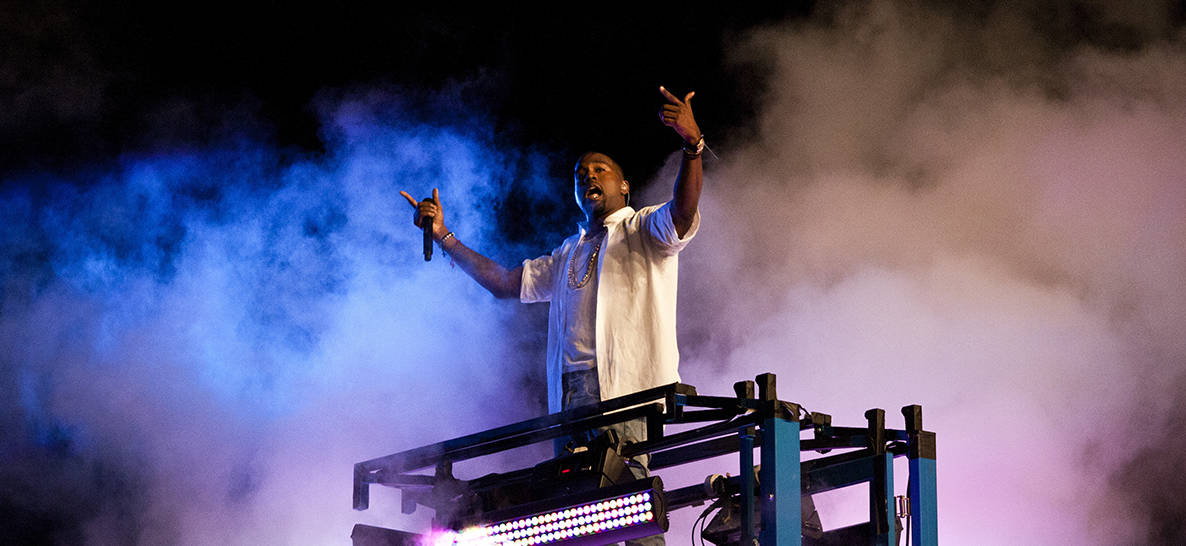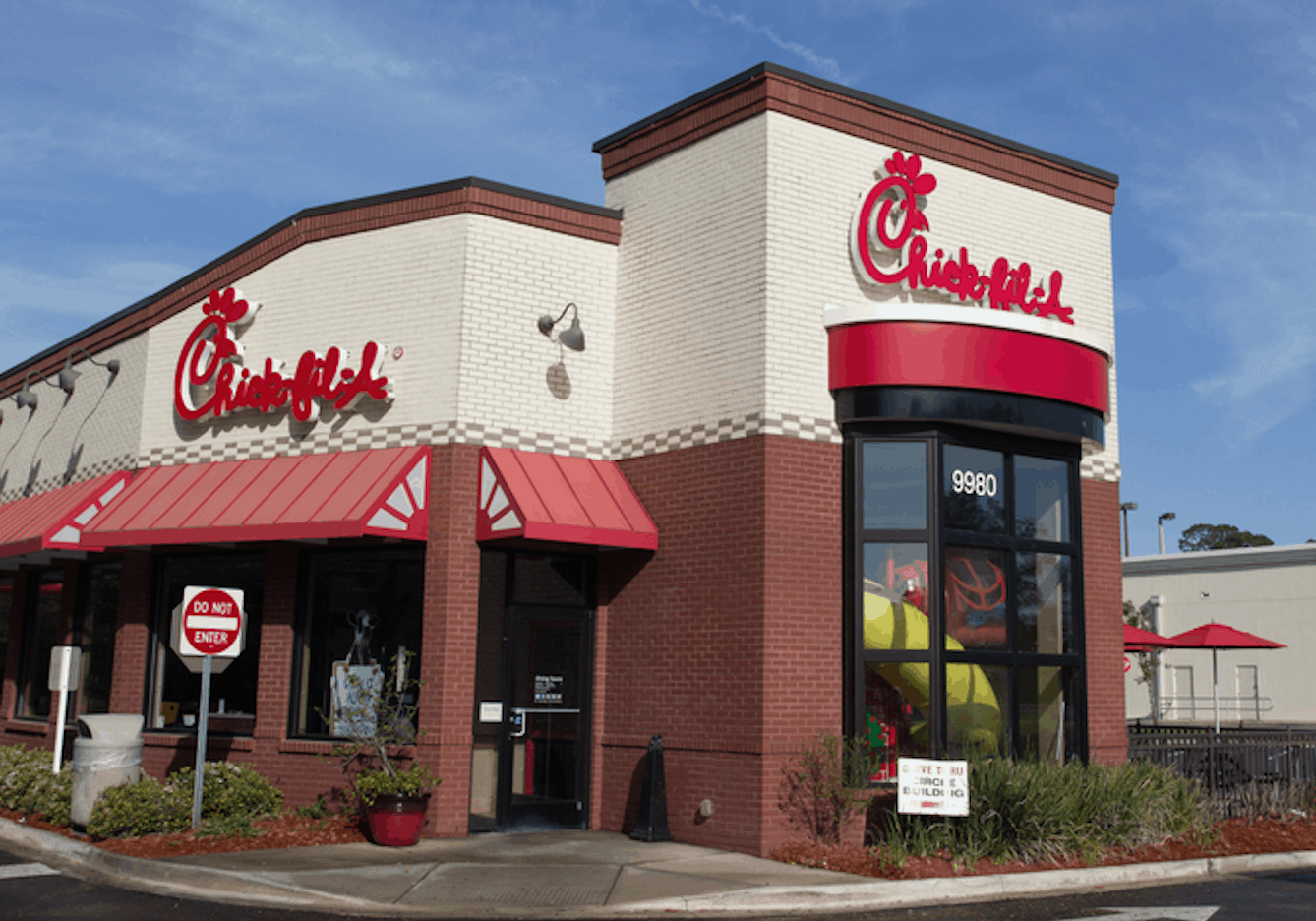
Gospel star Kirk Franklin recently found himself in the middle of a controversy, all because of a collaboration with Kanye West.
When a photo of Franklin hanging out in the studio with the controversial hip-hop star was shared to social media prior to the release of West’s new album, there was an immediate backlash against the gospel singer, who is a successful crossover star with millions of Christian fans.
After all, though Kanye’s early career breakout single “Jesus Walks” was a ballad to conflicted Christian faith, since then, he has been as known for outrageous statements and controversial (frequently explicit) lyrics as he has been for his music. Some of his recent comments have been totally indefensible: He’s been openly misogynistic, he’s defended Bill Cosby, he’s been just plain rude. Those behaviors have rightly been criticized.
But for Franklin, the backlash wasn’t unwarranted because of the content of Kanye’s music or his online behavior; it was misdirected because, as Franklin sees it, Kanye’s imperfections shouldn’t exempt him from hanging out with Christians. He wrote on Facebook:
Kanye is not me. I am not him. He is my brother I am proud to do life with. No sprints, but Marathons; like most of us are on. Before one song was released, I was crucified because my brother asked me to take a picture. Again, “No Kanye, you’re not good enough”? No. That is a dangerous message I believe we send to the world when our posture is they have to meet certain requirements before they are worthy to kiss the ring. It says people are not redeemable, forgivable or candidates for grace. That my friend is religious. I will not turn my back on my brother. I will love him, prayerfully grow with him. However long he’ll have me, and however long the race takes. To a lot of my Christian family, I’m sorry he’s not good enough, Christian enough, or running at your pace…and as I read some of your comments, neither am I. That won’t stop me from running. Pray we win.
Franklin acknowledges that both he and Kanye are different artists and different people. He doesn’t attempt to defend Kanye’s music or persona.
Instead, he warns Christians against requiring that certain qualifiers be met before engaging with people we don’t always agree with.
Mixed Messages
Kanye West has said his latest album, The Life of Pablo, is actually about the Apostle Paul. During his recent SNL appearance to promote it, he had even had Franklin close the song “Ultralight Beam” with a prayer, as he does on the album.
He’s called the album “a gospel album, with a whole lot of cursing on it.”
For many Christians, the statement seems like an oxymoron. Songs that talk about “God dreams” alongside explicit lyrics aren’t exactly “gospel” album fare.
But criticizing the merits of the Christian content misses the point. It can also be a trap that unintentionally disqualifies us from a bigger conversation.
No one (or at least no reasonable critic) is suggesting that Kanye West is actually a credible theologian. No one is suggesting his words should be held to the same standard of a pastor or a Christian leader. But when we criticize the orthodoxy of what are essentially artistic choices, we elevate the words to a higher level than they are meant to be held.
Kanye West isn’t a teacher or a leader. He’s an artist wrestling with ideas and emotions. It’s OK to disagree with them—but we shouldn’t automatically criticize him for expressing them, just because they mention our faith.
A Spiritual Journey
In many ways, Kanye West’s music—and public persona—have become a sort of documentation of a spiritual, personal and artistic journey: College Dropout, Late Registration and Graduation are thematically tied to the beginnings of his career: going from a minimum-wage, literal college dropout struggling musician to a full-fledged pop star with an evolving style and influential platform.
808s & Heartbreak is a solemn reflection on loss, broken relationships, loneliness and the sadness associated with decidedly adult problems, all wrapped in a completely different kind of electronic R&B sound.
My Beautiful, Dark, Twisted Fantasy, Watch the Throne and Yeezus represented a hard thematic turn: They deal with the opulence of celebrity culture and the intoxicating power of wealth and fame—as well as, ultimately, all of the inner darkness they can bring forth.
The Life of Pablo is maybe Kanye’s most complex album to date: It’s a mashup of spiritual wandering, manic venting and confessional narratives. Even the release and all of the hype surrounding it seemed like it’s own sort of cultural commentary:
Is the fact that he released an unfinished album (that’s essentially an ongoing work-in-progress) commentary about the concept of an album itself (or really any piece of artwork)? Or is it just a frantic mix of perfectionism and unprofessionalism? What’s performance art and what’s social media trolling meant to simply elicit a reaction? What’s an intentional artistic statement and what’s meaning simply projected on him by critics? Are we supposed to be laughing at him or with him?
But, through the entire journey, Christianity has been a constant theme. Many Christians, who (at times rightly) have had concerns about Kanye’s explicit lyrics, conflate criticizing the vulgarity itself with a sense of duty to also criticize mixing references to faith along with it.
In other words: Would it be better if he didn’t mention his struggles with Christianity at all? Does the fact that he openly discusses Christianity along with any number of unsavory things make the lyrics more offensive?
Ultimately, is criticism from Christians more directed toward his vulgarity, profanity and outrageousness or toward the fact that he is mixing questions about faith with them?
Engaging Culture
Too often, Christians have taken only two courses of action when it comes to reacting to statements about Christianity in culture that they don’t agree with: A large portion of Christian culture either chooses to completely ignore it, or to tear it down while warning others to avoid it.
Intentionally avoiding music, art or entertainment that you personally find repugnant is reasonable. Many people will choose not to listen to Kanye West or other music they find offensive. That’s a personal choice—one everyone is free to make.
But, taking the other position—that of being proactively critical and hostile toward Christian references you don’t agree with—can cause you to fail to miss the larger point being made.
Kanye West, like countless artists and provocateurs before him, presents a persona that has no filter. His art offers a lens to see the world through the blunt, non-politically correct perspective of someone who’s lived through his experiences.
On Twitter he wrote, “The world needs somebody to not be scared and tell his truth.” Kanye doesn’t claim to have the answers. But he does say he’s looking for them. And for him—and other artists—that search often takes the form of albums, stories, songs, movies and shows.
When those things actively discuss faith, Christianity, the Bible and Jesus, it’s our job as Christians to point culture in the right direction by engaging the difficult conversations—not criticizing someone for having them.
Great art isn’t always about truth, but it is about honesty.
Even if his statements about faith don’t measure up to a traditional Christian standard, the fact that Kanye is making them should be seen as an opportunity to talk about real biblical truth in honest ways and be a part of the cultural dialogue.
Our main concern shouldn’t be criticizing people we see as distorting the truth. Our concern be getting so caught up in “defending” truth that we miss the opportunity to reach people with it.
We don’t have to endorse someone like Kanye West, but we shouldn’t just dismiss him either.





















